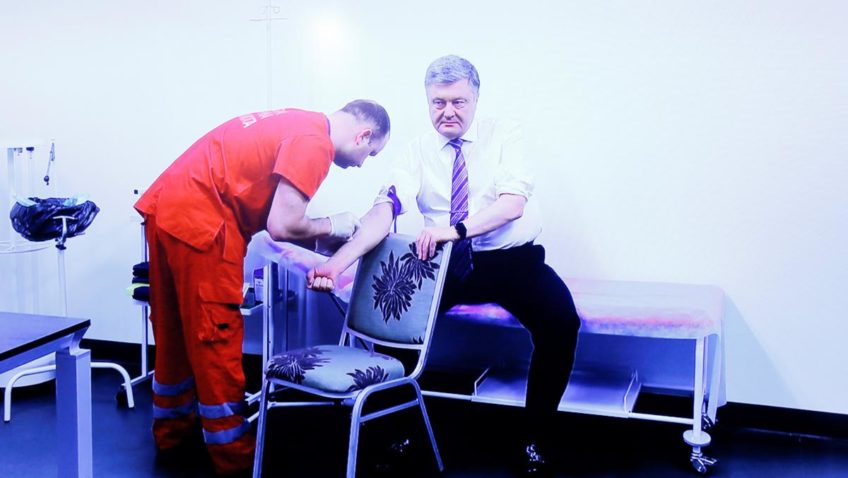Compiled by Hristo Voynov and Eva Jovanova
1. Though the Moldovan elections occurred just over a month ago, Moldovan President Igor Dodo believes that snap elections are inevitable because of the complications that have to arise in making a coalition between the three parties that received the bulk of the votes. The most likely coalition appears to be between Dodon’s former Socialist party with the anti-oligarch ACUM party, but this is still highly uncertain, as the two are split on whether Moldova should aim for closer ties to Russia or the EU, and ACUM wants the PSRM support for an aggressive anti-corruption and oligarchy bill. They both distrust the DPM party as it is led by the controversial businessman Vlad Plahotniuc, and so any coalition with the DPM is highly unlikely. A trade unionist coalition party has also just formed, but it is unlikely that they will have time to organize and impact any snap election, furthering the idea that the snap election will be a repeat of February’s results.
2. Sarajevo, Bosnia’s capital, begins to prepare for a pride parade. The parade is scheduled to take place on September 8. Bosnia and Herzegovina is among the few countries in the region that has not yet held a pride parade. Being gay was a crime according to the country’s laws until as late as 1998 and the country still lags behind the other countries in the region regarding tolerance and rights for LGBT people. Due to security reasons, no Pride parade has taken place so far, and all previous attempts to organize one had ended in violence. The political leadership of Bosnia remained silent, as the topic is still regarded as taboo. However, the Bosnian Croat President, Dragan Covic, announced that he fully supports the idea.
3. Following the first round of elections in Ukraine, the two remaining presidential candidates are eagerly competing for votes for the fast approaching second round of elections on April 21st. In an unusual video challenge, Ukrainian President Petro Poroshenko and his opponent, Volodymyr Zelensky, both gave blood, hair, and urine samples to prove they do not abuse drugs or alcohol. The competition also resulted in an agreed-upon debate in the Olympic Stadium, where Zelensky proposed bringing in the first round’s third-place Yulia Tymoshenko as the moderator in order to give her perspective a say in the debate. She refused. Some feel that this behavior is turning the election into a joke, while others see it as a new level of engagement between voters and politicians.
4. The local elections in Turkey left the Turkish President Erdogan shocked, as he seemed to have lost most major cities in Turkey this Sunday. The opposition parties won in Istanbul and Ankara, results that Erdogan’s Justice and Development (AKP) opposes. The Republican People’s Party (CHP) candidate Mansur Yavas won 51% in Ankara, whereas the AKP’s Mehmet Ozhaseki won just over 47%. This is the first time for Erdogan’s 16 years rule for his party to lose in the country’s capital. Around 57 million registered voters were eligible to cast their votes for mayoral and councilor candidates in over 1.300 districts. The turnout was about 85%. AKP has announced that it will oppose the results in Istanbul and the eastern province of Igdir as well.
5. A potentially historic teachers strike has been announced in Poland after much efforts to prevent it. This comes at a difficult time for Poland, for it is right before a major exam period, but more importantly, it may hurt the ruling Law and Justice (PiS) party in the upcoming European Parliament elections. It comes at a time when other major unions, most notably Solidarity (Solidarność in Polish) are also planning actions against government policies. The opposition party, Civic Platform, is using this moment to target the PiS party over poor policies, while a ‘leftist alternative’ to the two has emerged. The blowback of a strike from such a major field promises to shake up the upcoming elections, even if the PiS has had consistent support from Polish society.
6. Ministers from Albania, Bosnia and Herzegovina, Kosovo, North Macedonia, Montenegro, and Serbia met this Thursday in Belgrade and signed an agreement to start removing all roaming costs between the countries gradually. For the first time, these countries would have harmonized prices for calling, texting, and internet data. The agreement is expected to come into effect on July 1 this year, and all tariffs should be removed by July 1, 2021. The concept is famous as “Roam like at Home.”


0 comments